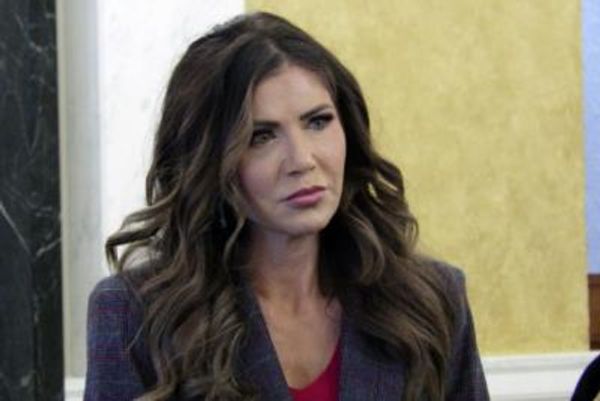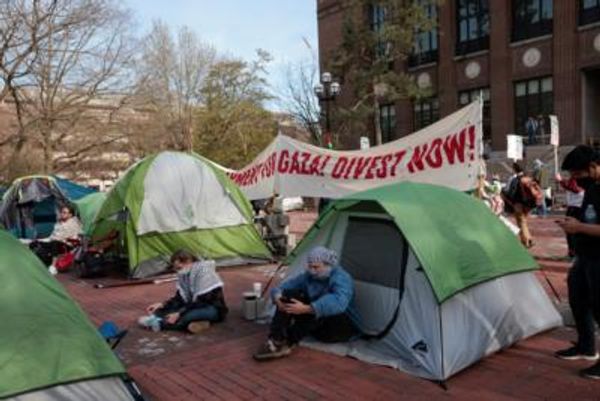
Without an analysis of power, it is hard to understand inequality or much else in modern capitalism.”
Angus Deaton, March 2024
Angus Deaton is the economic doyen from central casting. The bow-tie-wearing econometrician was born in Scotland, did a PhD at Cambridge and has been at Princeton for the last 40 years. He’s currently the Eisenhower Professor of Economics and International Affairs Emeritus. He won the Nobel Prize for Economics in 2015. And he’s just dropped an almighty bucket of shit on his entire profession.
Where Deaton published it is almost as interesting as the contents: at the International Monetary Fund, that institution once seen as the standard-bearer of neoliberal orthodoxy, but which has in recent years developed a curiosity about the real-world impacts of the hardline policies it once imposed upon or prescribed to countries.
Deaton lobs a series of truth bombs at his own profession, the result, he says, of “changing my mind, a discomfiting process for someone who has been a practising economist for more than half a century”. These include:
- “We have largely stopped thinking about ethics and about what constitutes human well-being”.
- If “economists should focus on efficiency and leave equity to others, to politicians or administrators… the others regularly fail to materialise, so that when efficiency comes with upward redistribution — frequently though not inevitably — our recommendations become little more than a license for plunder”.
- “Historians, who understand about contingency and about multiple and multidirectional causality, often do a better job than economists of identifying important mechanisms…”
- Far from being “a nuisance that interfered with economic (and often personal) efficiency”, unions “once raised wages for members and nonmembers, they were an important part of social capital in many places, and they brought political power to working people in the workplace and in local, state, and federal governments. Their decline is contributing to the falling wage share, to the widening gap between executives and workers, to community destruction, and to rising populism.”
- “I am much more sceptical of the benefits of free trade to American workers and am even sceptical of the claim, which I and others have made in the past, that globalisation was responsible for the vast reduction in global poverty over the past 30 years”.
- Immigration contributes to inequality.
But Deaton’s main point is a recognition of how power distorts policy: “Our emphasis on the virtues of free, competitive markets and exogenous technical change can distract us from the importance of power in setting prices and wages, in choosing the direction of technical change, and in influencing politics to change the rules of the game.”
What’s extraordinary is that a Nobel Laureate economist has only achieved this realisation so late in his career. Anyone with practical experience of policymaking, or with training as a historian, or even someone who has worked as a lobbyist or consultant, has a grasp of what Deaton has only belatedly realised: modern capitalism, particularly in its neoliberal form that disempowers governments and rivals like trade unions, is about the use of power by corporations to “change the rules of the game”, to increase certainty for themselves and reduce it for competitors, workers and consumers. It speaks volumes about how sheltered many mainstream academic economists really are.
But it’s not merely economists. What is equally extraordinary is how little this reality of how power distorts capitalism (which is a defining element of our mission statement here at Crikey) is recognised in a supposedly well-educated developed economy like Australia. True, the distorting effects of oligopolistic corporations on inflation, and the impact on wages growth of the decline of unions, are two examples that have attracted attention in the mainstream media over the past couple of years. But both are issues some progressive economists have been talking and warning about for over a decade.
Such topics remain taboo, or bitterly attacked, in organs like the Financial Review. Instead of reporting Deaton’s comments, today the AFR covered yet another speech calling for deregulation and tax reform by yet another chair of the Business Council, and the wisdom of Peter Costello on higher interest rates.
It’s what passes for economic debate in a media that, far from recognising the role of power in capitalism and seeking to hold that power to account, is part of the power structure itself. Our corporate media, like other large corporations, likes to influence politics to change the rules of the game. Not only is it unwilling to scrutinise such power, it is incapable of doing so.







